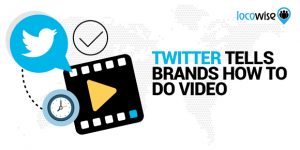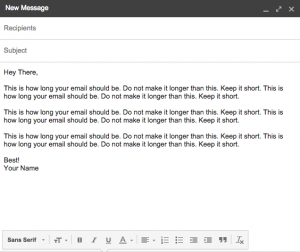
Hiring is the most important part of the employee life cycle.
It all starts with the hiring process. If you hire the right person, they’ll be more likely to stay with your organization, add value faster, and get along well with the rest of your team.
Considering all the time, money, and energy that goes into hiring, it’s important that you get it right.
I remember when I used to do the hiring at one of my previous jobs, all of my interviews were unstructured.
I made all of the mistakes that so many recruiters make. I went with my “gut feeling” instead of relying on data. If I was tired one afternoon, I’d rush through the interview just to get it over with. I’d size them up within five seconds and know right away if they’d be hired or not.
Over time, I learned that this wasn’t fair to the candidates or the company. We were likely missing out on amazing people because my biases were getting in the way.
Since then, I’ve learned a lot about all aspects of the employee life cycle, including hiring.
I’ve also learned a lot about psychology. In psychology, what I was doing is known as the confirmation bias:
“the tendency to search for, interpret, or prioritize information in a way that confirms one’s beliefs or hypotheses.”
The whole interview is spent trying to confirm what we already think of someone, instead of focusing on them!
The Power Of A Structured Interview
In the book Work Rules! By Laszlo Bock, SVP of People at Google, he talks about a study by two psychology students at the University of Toledo, Tricia Pricket and Neha Gada-Jain, that found that judgments made in the first 10 seconds of an interview could predict the outcome of the interview.
From the book:
They videotaped interviews, and then showed thinner and thinner “slices” of the tape to college students. For 9 of the 11 variables they tested — like intelligence, ambition, and trustworthiness — they found that observers made the same assessments as the interviewers. Even without meeting the candidates. Even when shown a clip as short as 10 seconds. Even with the sound turned off.
In other words, most of what we think is “interviewing” is actually the pursuit of confirmation bias. Most interviews are a waste of time because 99.4 percent of the time is spent trying to confirm whatever impression the interviewer formed in the first ten seconds. “Tell me about yourself.” “What is your greatest weakness?” “What is your greatest strength?” Worthless.
What he recommends instead, based on decades of research is the structured interview.
Based on 85 years of research in how to properly select people for job roles1, they found that the three best predictors of job performance are:
- Work sample test
- General cognitive ability test (like an IQ test)
- Structured interviews
The problem with the work sample test is many jobs don’t have a test you can give them, and real-world performance depends on a lot of things, like how you interact with others, the time you’re given, etc.
The problem with general cognitive tests, is that they consistently discriminate against non-white, non-male test takers.
Structured interviews are interviews with a consistent set of questions and criteria to assess the quality of the answers.
There are two types of structured interviews: behavioral and situational.
Behavioral interviews look at previous behavior (“Tell me about a time when…”) and situational interviews are hypothetical situations (“What would you do if…”).
Questions To Ask In An Interview
Between situational and behavioral interviews, I personally prefer behavioral. It’s much easier to assess someone’s past behavior, because you can dive deeper with follow up questions to look for certain things like empathy or how they handle conflict, etc.
Situational questions are all hypothetical anyway, which are less valuable in my personal opinion.
Here are 20 questions you can use in your next interview:
- Tell me about a time you had to work with someone who had a different personality than yours. Did any issues arise?
- Describe a time when you had trouble building a relationship with a coworker. Did you eventually overcome it? If so, how?
- Tell me about a time you needed to get information from someone who wasn’t very responsive. What did you do?
- Tell me about a time when you did not meet a client’s expectation. What happened, and how did you end up fixing the situation?
- Describe a time when you were under a lot of pressure at work. What was going on, and how did you handle it?
- Describe a time when you failed at work. How did you handle that failure?
- Describe a long-term project that you worked on. How were you able to manage your time over the course of the project?
- Tell me about a time when work got a little overwhelming. What did you do to handle it?
- Tell me about a time you gave a presentation that went well and why you think it went well.
- Tell me about two things you’re proud of in your professional career.
- Tell me about a stressful situation you had at work and how you handled it.
- Give me an example of a time you discovered an error that one of your colleagues made. What did you do?
- Tell me about a time when you had to make a decision without all the information you needed. What did you do?
- Tell me about a time you set a goal for yourself, but didn’t reach it. How did that make you feel?
- Tell me about an amazing idea you’ve had at work and how it was received.
- Describe a situation where you had to work with someone who didn’t like you. How did you handle it?
- Give me an example of a decision you made at work that you later regretted.
- Describe an idea that you had to sell to the senior leaders. How did you go about presenting it up the ladder?
- What tools or techniques do you use to manage your time?
- You have two team members that can’t get along with each other. How do you come up with a solution that’s fair for everyone?
Bonus: Questions Job Candidates Should Ask
Remember that while an interviewer is interviewing a potential candidate, the candidate is also interviewing the company.
There are many signs to look out for during the entire process that will tell you if this is a company you want to work at.
At the end of most interviews, the interviewer asks “Do you have any questions for me?”, and this is the perfect opportunity to ask some follow up questions. This does two things:
- It makes you appear more intelligent
- It lets you find out things that potentially didn’t come out in the interview
Here are 6 questions that you can ask to learn more about the company and make a better impression on the interviewer.
- What does the ideal candidate look like for this position?
- How would you describe the company’s culture?
- Who do you consider your major competitors?
- What are the biggest challenges of this position?
- What’s the typical day-to-day like in this role?
- If you don’t mind me asking, why did the person before me leave this role?
What Interview Questions Do You Like To Use?
Let us your favorite interview questions in the comments below!
Download this right now: Our complete guide to recruiting to help you hire the best employees.
Business & Finance Articles on Business 2 Community(34)








